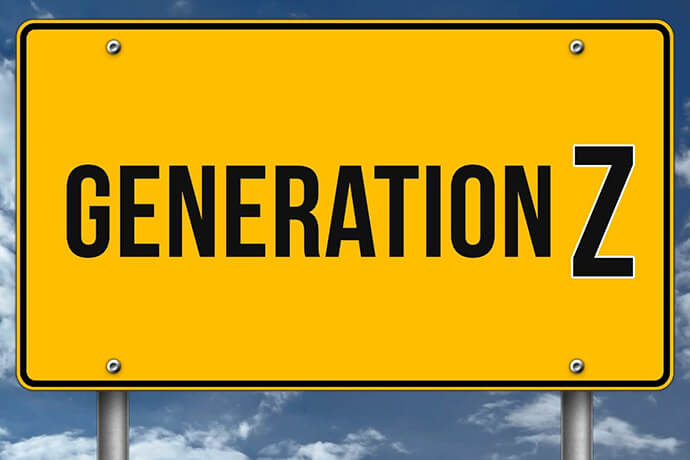 SPEAKERS
SPEAKERS
 TOPICS
TOPICS
Gen Z, also known as Zoomers, refers to the demographic that directly follows the Millenials. They are generally people who were born in the late 1990s, all the way to the early 2010s.

Gen Z, also known as Zoomers, refers to the demographic that directly follows the Millenials. They are generally people who were born in the late 1990s, all the way to the early 2010s. They are known for being politically and socially responsible and for their activism. To be exact, they are the people born between 1997 and 2012.
The oldest members of the Gen Z are currently in their mid-20s. But for nearly a decade, Zoomers have been letting their voices be heard, especially when it comes to environmental and social matters. Social responsibility is a huge keyword for Gen Z. Their activism is aimed at preserving the planet not just for their generation, but also Future generations.
Youth activism and social responsibility are closely linked with Gen Z. They are the first generation in the world to have been born in a rapidly digitally evolving world. They grew up with technology in their hands and many of them grew up as digital natives, using the internet from an early age. This gives them easy access to information from around the world. The Gen Z meaning is 'generation Z'. Through their formative years, they've witnessed major economic crises, climate change, a global pandemic, and much much more. This has inspired social responsibility in Gen Z, making them a generation known for their social activism.
The Characteristics Of Gen Z
Knowing their characteristics can help you with attracting Gen Z. These are the qualities that Gen Z are mainly known for:

Millenials are the generation that precedes Gen Z. They are the people born between 1982 and 2000. Older Millenials are already in their 40s while Gen Z has yet to make it into their 30s. Social responsibility is something that Millenials and Gen Z approach very differently. Gen Z's role in shaping social responsibility is tremendous, as this generation believes that they can make positive changes to their society through activism. Millenials weren't known for being activists, but rather for their approach to work, known as 'hustle culture'.
A core difference is also that Millenials were raised in a boom economy, where money was available and people had good jobs. Gen Z on the other hand, grew up during a bust economy. There were jobs and money was an issue. This has affected how both these generations approach the world.
There are other differences as well, such as:
The millenial versus Gen Z debate can go on, but these were the central differences between them. The future of social responsibility inspired by Gen Z can fuel the next generation to take up social causes as well. Even the Gen Z worker is different from the Millenial worker.

Social responsibility trends among Gen Z may change, and how this generation speaks up may change, but Gen Z are closely linked to making real changes in the world. Gen Z perspectives on social responsibility have affected Millenials, Gen Alpha and other demographics as well. Gen Z had made it easier for people to openly speak against injustice and demand positive changes in the world.
Get in touch with Speaker Agency to learn all about Gen Z and their impact on social responsibility, from a trusted speaker. Find out more about this generation and what inspired social responsibility in them.